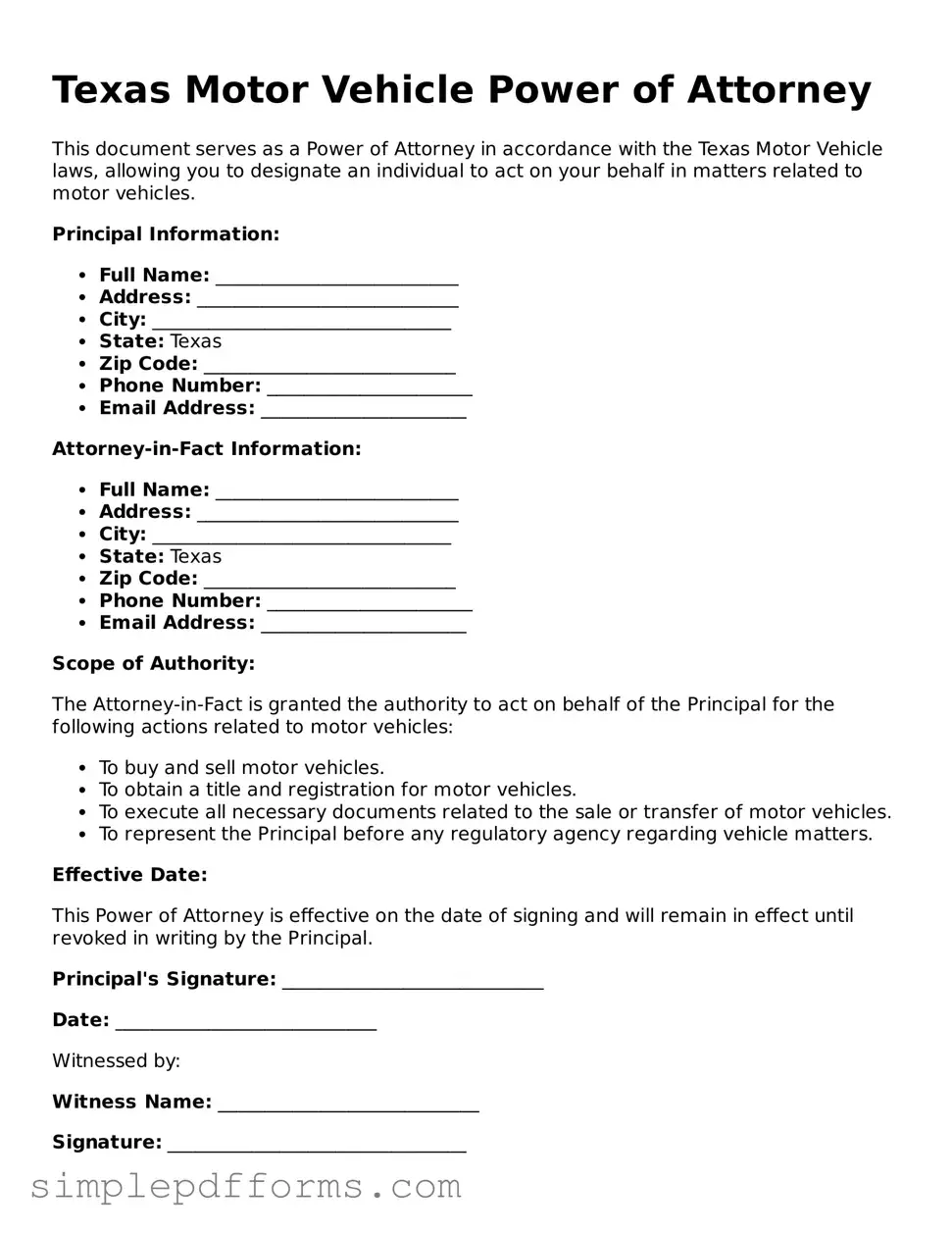Attorney-Verified Motor Vehicle Power of Attorney Document for Texas State
The Texas Motor Vehicle Power of Attorney form is a legal document that allows one person to authorize another to act on their behalf in matters related to motor vehicle transactions. This form is particularly useful when the vehicle owner cannot be present to complete necessary paperwork, such as title transfers or registrations. By using this form, individuals can ensure their vehicle-related affairs are handled smoothly and efficiently, even in their absence.
Open Motor Vehicle Power of Attorney Editor Now

Attorney-Verified Motor Vehicle Power of Attorney Document for Texas State
Open Motor Vehicle Power of Attorney Editor Now

Open Motor Vehicle Power of Attorney Editor Now
or
Get Motor Vehicle Power of Attorney PDF Form
Your form is waiting for completion
Complete Motor Vehicle Power of Attorney online in minutes with ease.